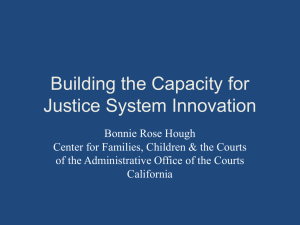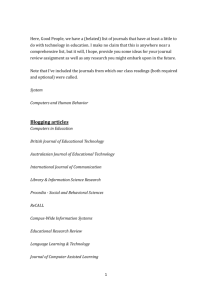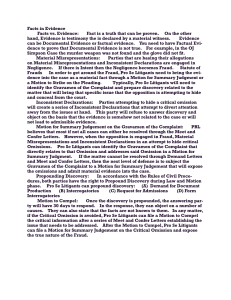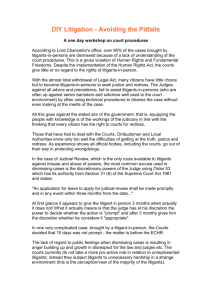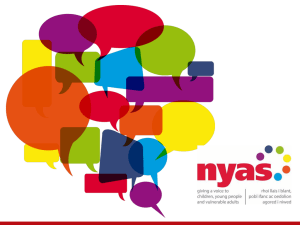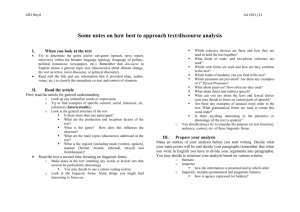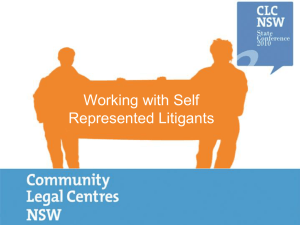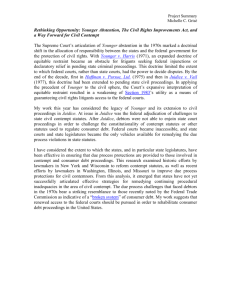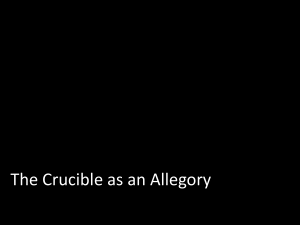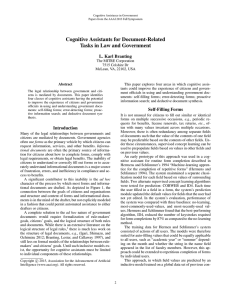Multi-modal discourse analysis of the financial order proceedings
advertisement
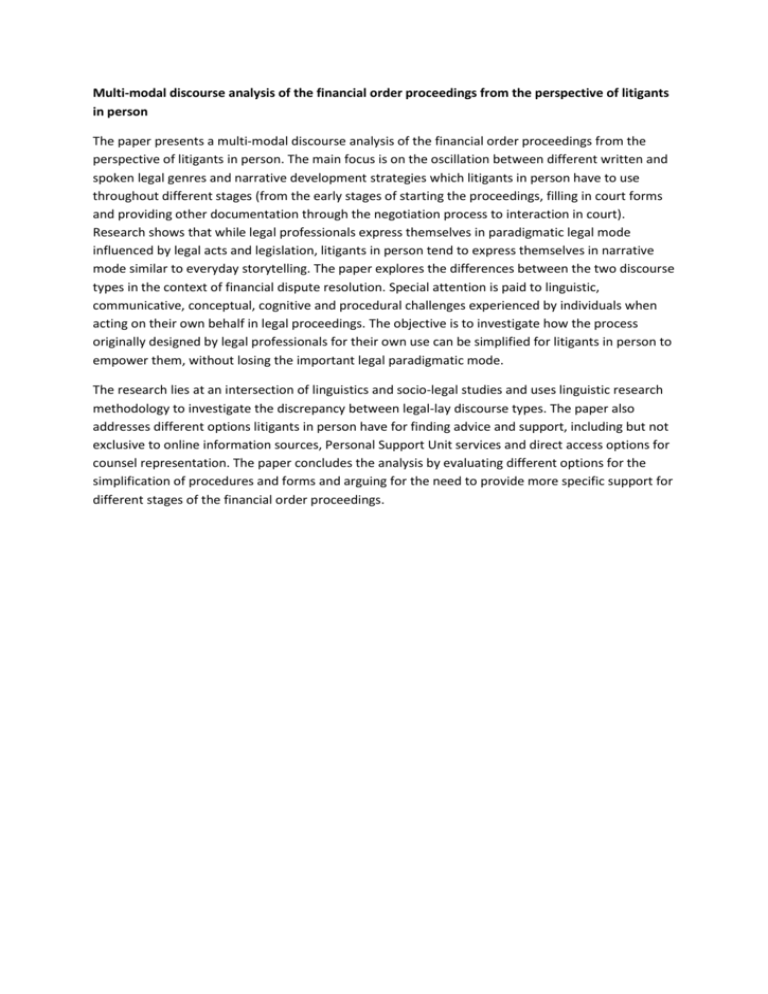
Multi-modal discourse analysis of the financial order proceedings from the perspective of litigants in person The paper presents a multi-modal discourse analysis of the financial order proceedings from the perspective of litigants in person. The main focus is on the oscillation between different written and spoken legal genres and narrative development strategies which litigants in person have to use throughout different stages (from the early stages of starting the proceedings, filling in court forms and providing other documentation through the negotiation process to interaction in court). Research shows that while legal professionals express themselves in paradigmatic legal mode influenced by legal acts and legislation, litigants in person tend to express themselves in narrative mode similar to everyday storytelling. The paper explores the differences between the two discourse types in the context of financial dispute resolution. Special attention is paid to linguistic, communicative, conceptual, cognitive and procedural challenges experienced by individuals when acting on their own behalf in legal proceedings. The objective is to investigate how the process originally designed by legal professionals for their own use can be simplified for litigants in person to empower them, without losing the important legal paradigmatic mode. The research lies at an intersection of linguistics and socio-legal studies and uses linguistic research methodology to investigate the discrepancy between legal-lay discourse types. The paper also addresses different options litigants in person have for finding advice and support, including but not exclusive to online information sources, Personal Support Unit services and direct access options for counsel representation. The paper concludes the analysis by evaluating different options for the simplification of procedures and forms and arguing for the need to provide more specific support for different stages of the financial order proceedings.
